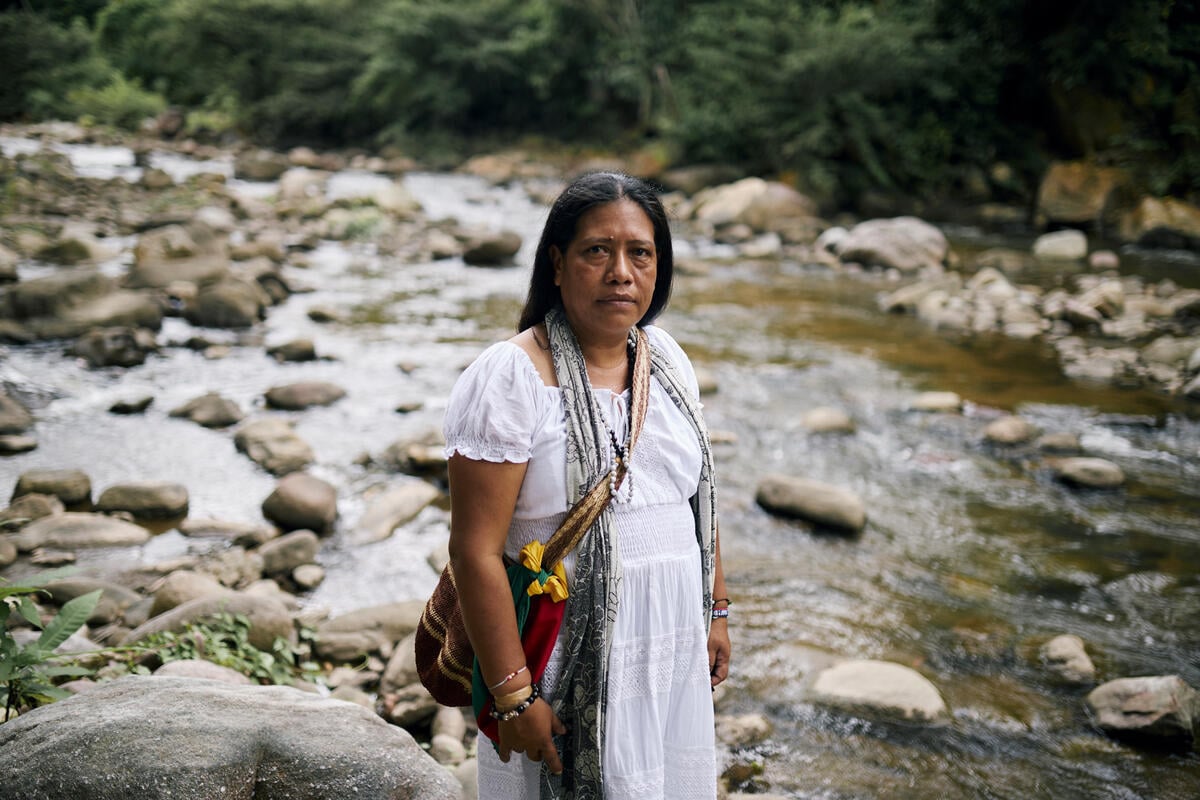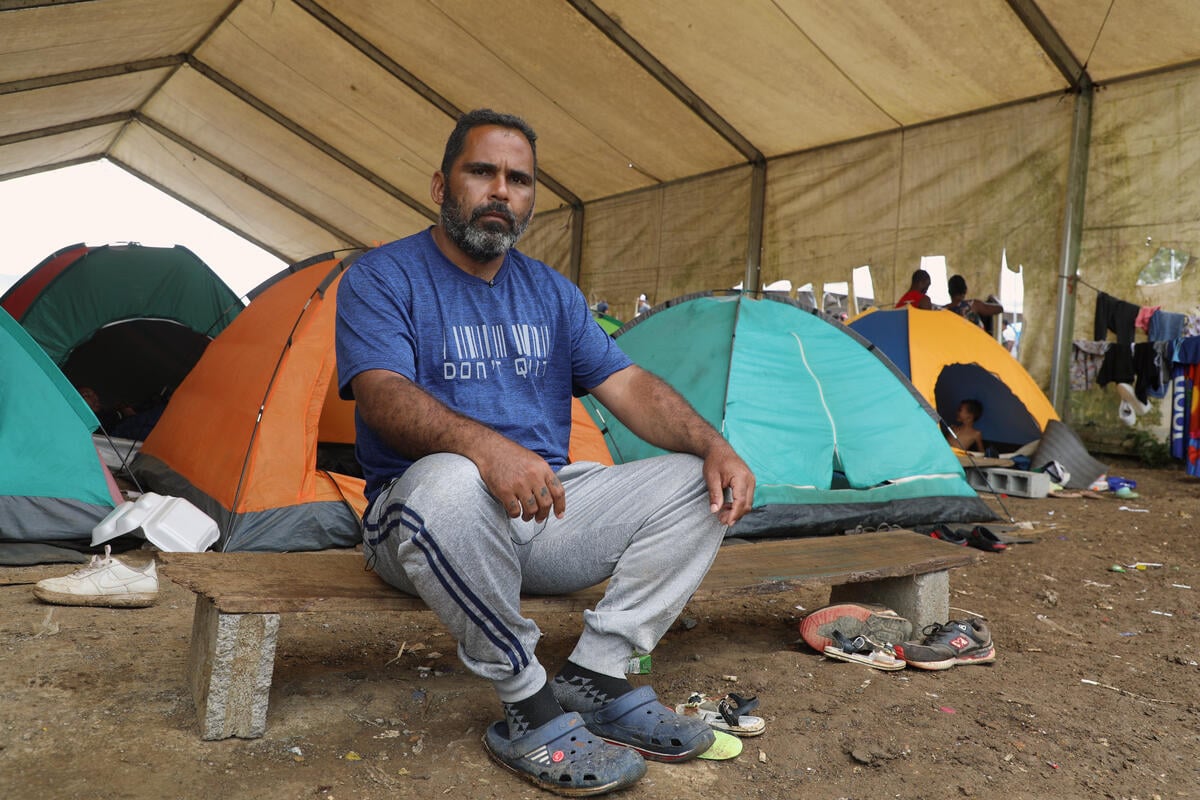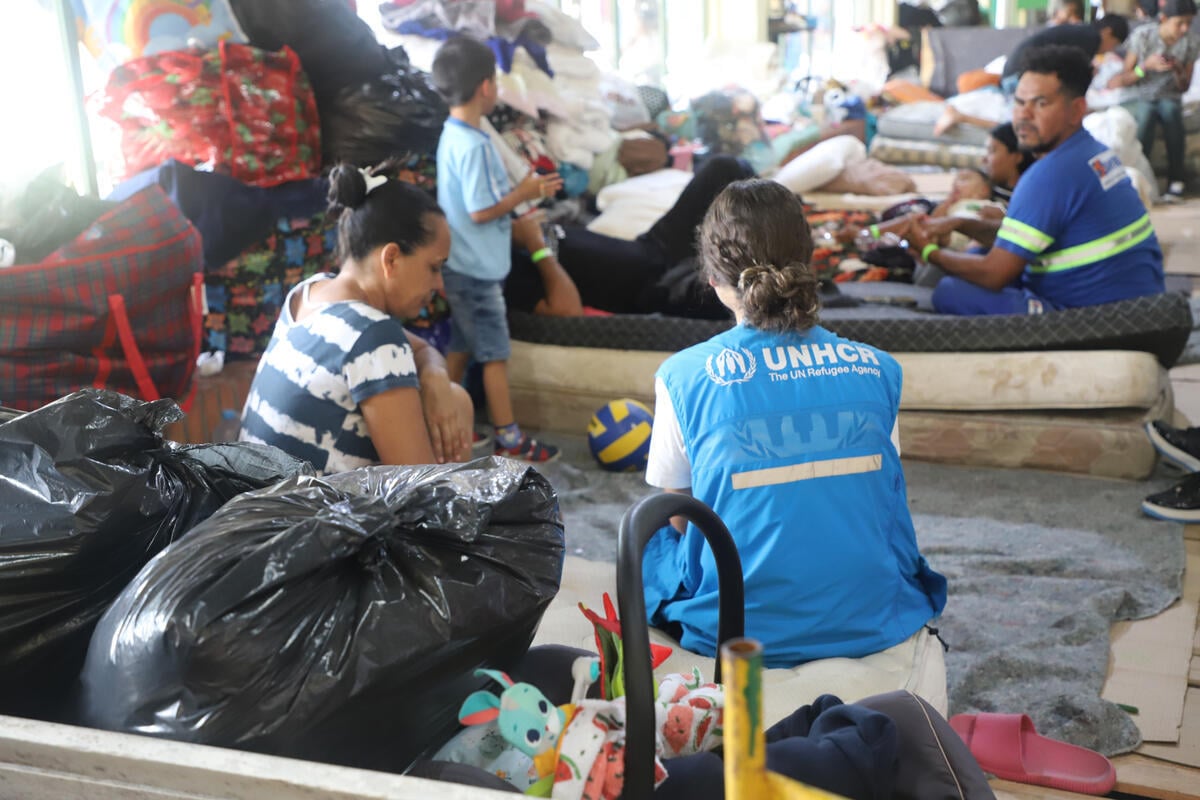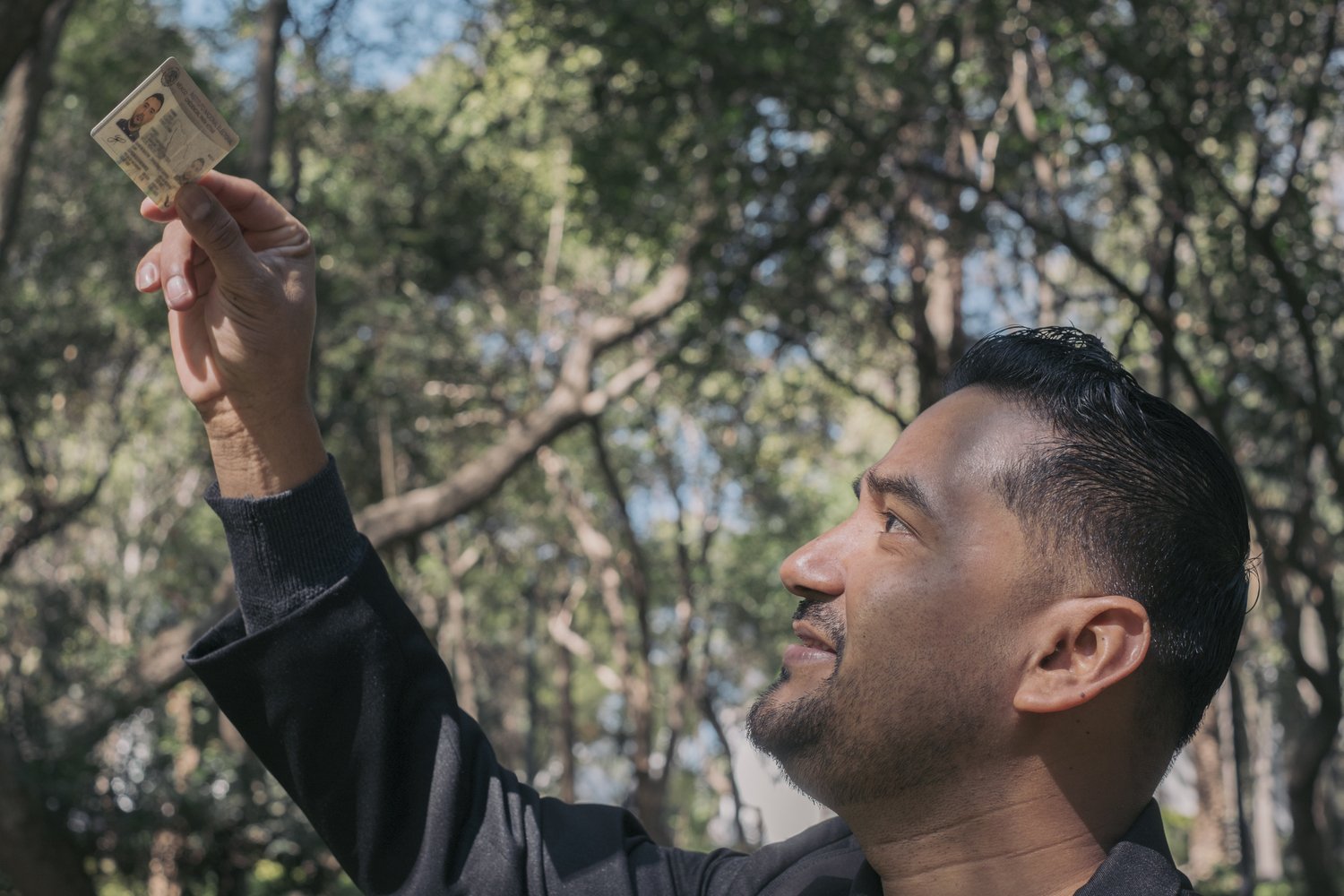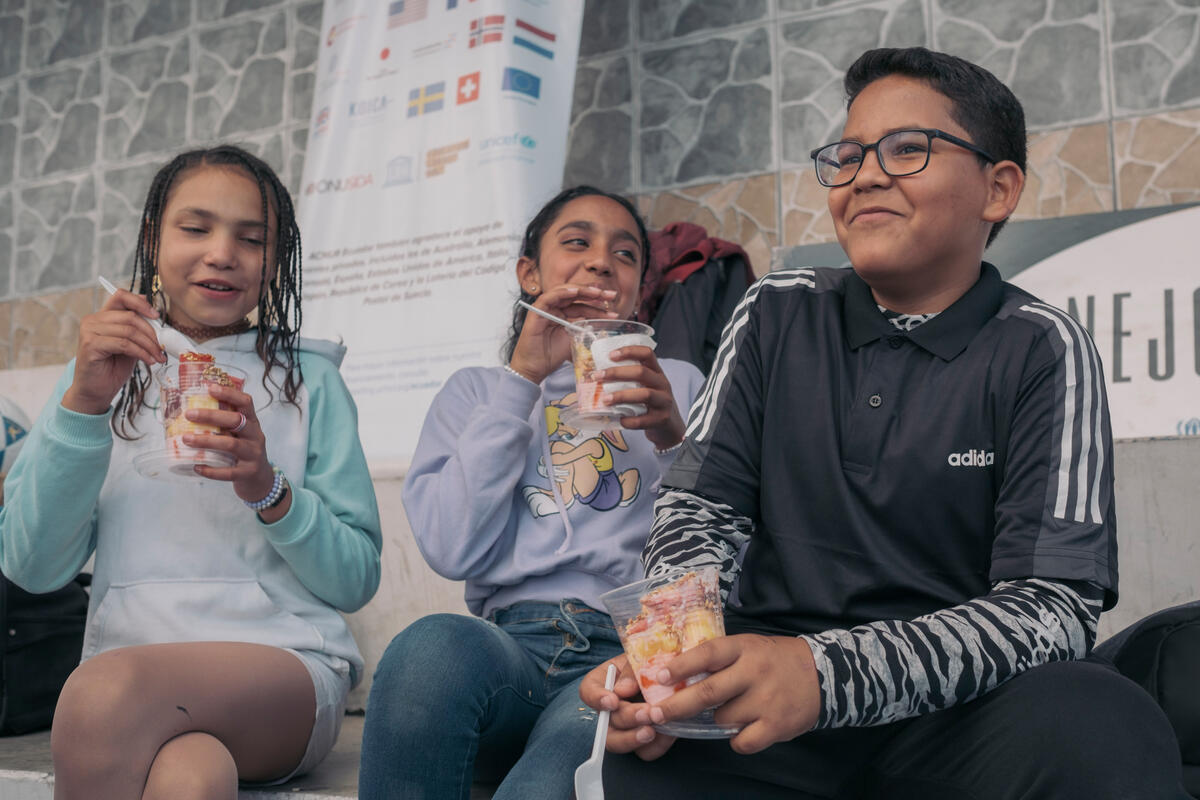'Network Guardians' help to bridge gender digital gap in Ecuadorian neighbourhood
Desiree Núñez wakes up early in her small home in Guayaquil, the largest city in southwest Ecuador. She is getting ready to start her rounds of Juan Montalvo, the neighbourhood that opened its doors to her and her children four years ago, to let the community know the good news: there's a new and free internet service that can be used by everyone.
"This is very exciting. It's the first time we have internet in our neighbourhood," said Desiree.
According to assessments conducted by UNHCR, the UN Refugee Agency, in three main refugee-hosting neighbourhoods in the city, most people lacked a reliable internet connection due to high costs and poor infrastructure, posing barriers to digital inclusion and leaving a large population disconnected. "Not having internet means I cannot promote my business, my children cannot do their homework properly and I can't communicate with my family as much as I would like to," said Desiree.
"I am glad to do this for my community."
Thanks to a community-led initiative that makes use of blockchain technology, supported by UNHCR through local telecom startup Wayru and other partners, thousands of residents of Juan Montalvo will now be connected to a high-quality fiber network with Wi-Fi routers that have a 100 metre radius on each block.
As Desiree heads out, she checks the router and signal on her block, making sure everything is running smoothly. "I need to keep the service working for everyone," said the 32-year-old, who is one of 16 community leaders that have volunteered to become 'guardians' of the Wi-Fi routers, 13 of whom are women. "Having internet is very important and I must make sure nothing happens to it [the router]. I am glad to do this for the community. Most of us didn't have internet because we cannot afford it."
Apart from supporting refugee and local community leaders with training on how to troubleshoot problems with the routers and spread the word about this free service, the programme provided the guardians, and dozens of youth, with digital economy courses to teach them how to use this technology to grow a small business or find jobs.
While advancements in digital technology offer opportunities to address development and humanitarian challenges, access remains a huge barrier. Nearly 30 per cent of the population in Ecuador does not have access to the internet. The figure is even lower in many countries in the region, where inequalities in accessing internet services mean millions of people – including refugees and other displaced people – are falling through the digital gap and are excluded from economic, education, employment, and other opportunities.
Women and girls are even less likely to have internet access. Globally, women are 8 per cent less likely than men to own a mobile phone. For those that do own a phone, they are 20 per cent less likely to use the internet on them. This digital gap is even more pronounced among forcibly displaced people, which further prevents refugee women and girls from becoming empowered and independent.
This year’s International Women’s Day calls for the use of innovation and technology to help achieve greater gender equality and empowerment.
Referring to the initiative to install internet in Desiree’s neighbourhood, Giovanni Bassu, UNHCR Representative in Ecuador, describes it as: "The first time UNHCR is using a single base internet point from which the community can connect via multiple routers." He added that this technology provides a cheaper and more sustainable service. "Getting refugees and locals involved in all aspects related to digital inclusion means this becomes a project made by them, based on their needs."
The 20 routers being installed near homes, schools, and community centres can connect 200 people simultaneously, most of whom have never had internet at home.
"I can earn a living directly from home and reach people I couldn't before."
Desiree recalls how she used to have to go to a local cybercafé every time she or her children needed internet. "Each of my kids spent at least US$2 dollars on internet for each of the three or four pieces of homework they had each day. This was simply too expensive."
For families like Desiree’s, who often had to choose between education and food, accessing internet services was nearly impossible. Obtaining a regular status or even starting an asylum procedure was also difficult with procedures that are dependent on the availability and quality of internet.
Desiree had struggled to get her food business up and running to support her two children. She now hopes that the combination of free internet access with the digital education courses she received will help her expand her clientele and her capacity to earn a stable income.
"I didn't know how to use e-mail or even how to open an account. Spreadsheets were unimaginable for me," said Desiree. "I can now manage my accounts, keep my financial records and write to neighbours who live further away to offer my arepas and empanadas. I can earn a living directly from home and reach people I couldn't before."
She now dares to dream that she will one day save enough money to open her own shop.
This new community-led internet network in Guayaquil is possible thanks to the support of UNHCR's Digital Innovation programme, funded by the Grand Duchy of Luxembourg.







